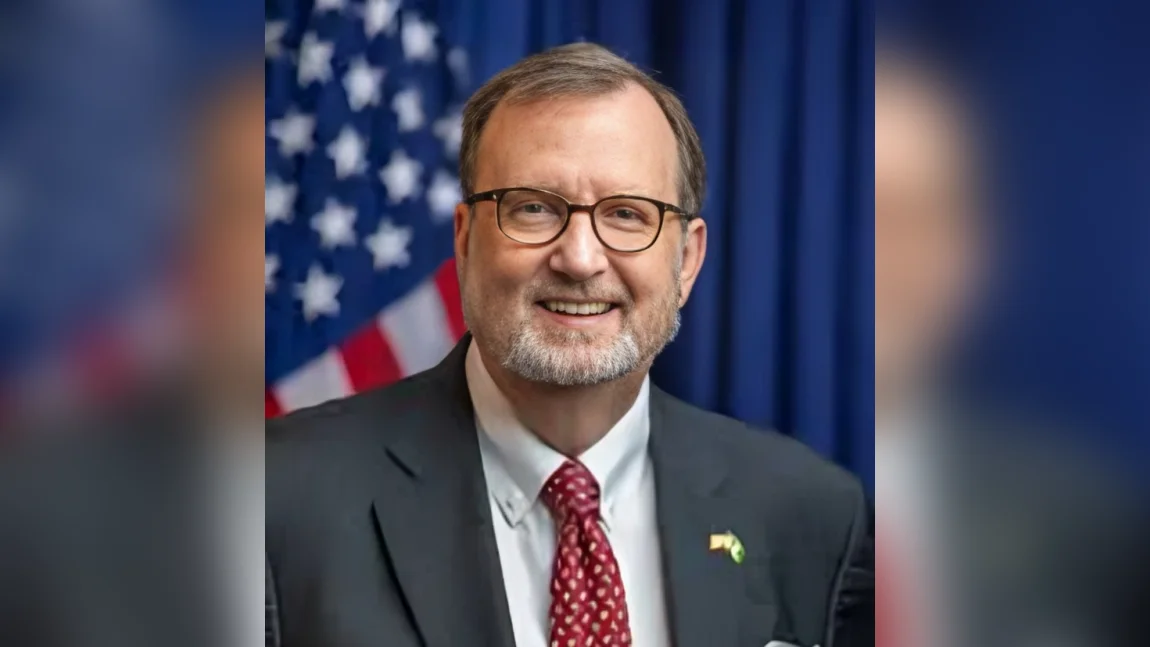Senior officials from Nigeria and the United States convened in Abuja to celebrate 20 years of partnership between the Nigeria Ministry of Defence Health Implementation Programme (NMODHIP) and the Walter Reed Army Institute of Research (WRAIR). The event, held at the Abuja Continental Hotel, was attended by Dr. Bello Mattawale, Minister of State for Defence; Richard Mills, U.S. Ambassador to Nigeria; General Christopher Musa, Chief of Defence Staff; Major General Paula C. Lodi, Commanding General of the US Army Medical Research and Development Command; Brigadier General IB Solebo, Director General of NMODHIP; Colonel Brianna Perata, Commander of WRAIR; Colonel Shannon Lacy, Director of WRAIR Africa; and Helina Meri, Country Director of WRAIR in Nigeria.
Brigadier General IB Solebo opened the ceremony by highlighting how the collaboration has strengthened military and public health response in Nigeria. He noted that it has expanded access to HIV care, established advanced laboratories, trained thousands of healthcare workers, and led important research efforts. Solebo described the partnership as "a model of resilience, innovation, and impact for soldiers, families, and communities."
Dr. Matawalle praised the long-standing cooperation between both countries' militaries and emphasized its significance for national security. He said that these joint efforts have provided critical health services over two decades. He also expressed appreciation to the U.S. government for its support and affirmed ongoing commitment from Nigeria.
The partnership began in 2005 with a focus on military-to-military health initiatives. Its activities include HIV programming through PEPFAR (the U.S. President’s Emergency Plan for AIDS Relief), biosafety programs, biosecurity measures, infectious disease surveillance and research, as well as malaria interventions under the President’s Malaria Initiative.
Over two decades, this collaboration has had significant impact: more than 69,000 adults and children have started antiretroviral therapy (ART), over 40,900 are currently receiving treatment, and 77,000 have been enrolled since inception. HIV testing services have reached 1.6 million clients across Nigeria with a seven percent positivity rate—110,097 positive cases identified so far. Among women tested during pregnancy counseling sessions (277,975 mothers), 15,098 were found positive for HIV and 13,377 received ART.
In addition to patient care achievements, more than 2,000 healthcare professionals have been trained in managing HIV and tuberculosis. Over 50 laboratories nationwide have been upgraded as part of strengthening health infrastructure. In 2024 a new TB Modular Laboratory was commissioned at the Defence Reference Laboratory in Abuja to enhance diagnostic capacity and improve regional biosafety standards.
Ambassador Mills spoke about the broader meaning behind this partnership: “This partnership has not only been about scientific advancement; it has been a testament to the power of unity. The challenges we faced were formidable, but the resilience and dedication shown by both WRAIR and NMODHIP have turned obstacles into opportunities. Together, we have shown that by working hand in hand we can produce extraordinary results that serve our communities better.”
Helina Meri concluded by acknowledging leadership from both governments while emphasizing that their work demonstrates how science-based cooperation can advance human well-being.
Both countries reiterated their intention to continue building on these accomplishments as they enter a third decade of collaboration.
The Walter Reed Army Institute of Research is recognized as the largest biomedical research facility run by the U.S. Department of Defense with global work focused on infectious diseases affecting military personnel and communities worldwide.
The NMODHIP leads health program implementation with an emphasis on infectious disease research and strengthening systems serving both military members and civilians in Nigeria.

